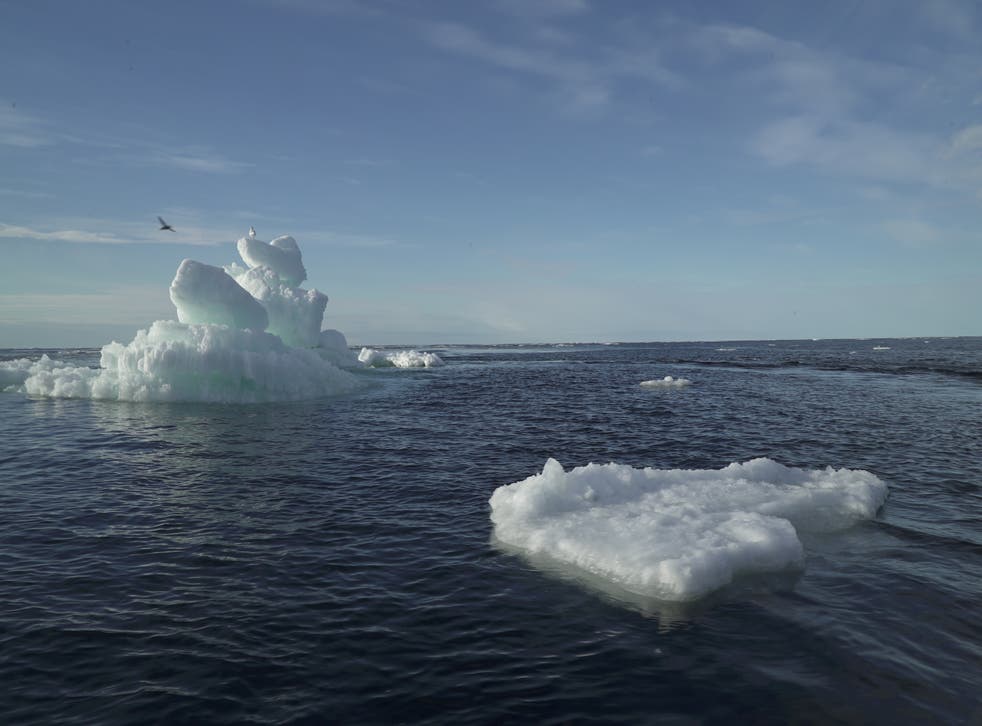‘Mindboggling’ Arctic heatwave breaks records
‘Profound heatwaves’ in region will be more common, warns meteorologist
Rory Sullivan@RorySullivan92
THE INDEPENDENT 24/5/2021

Floating ice in the Arctic Ocean in September 2020
(via REUTERS)
A “mind-boggling” heat wave in the Arctic has broken temperature records in north-west Russia, meteorologists have said.
Last Wednesday, the mercury rose above 30C in parts of the Arctic, significantly above the average for the time of year.
Scott Duncan, a meteorologist based in the UK, described conditions as “truly exceptional for any time of the year but mind-boggling for May”.
The climate expert added that because the Arctic is warming so fast, “profound heatwaves” are more likely to occur in the future.
Increasing temperatures are causing ice and permafrost to melt in the region, resulting in previously trapped methane being released into the atmosphere and contributing to global heating.
The current heatwave looks set to continue, with climate scientist Zack Labe saying that over the coming week temperatures will be more than 10C above average in eastern Siberia.
Although still shocking, the temperatures seen this month are well below the hottest ever day in the Arctic, which was the 38C recorded in the Siberian town of Verkhoyansk last year.
At the time, the CBS News meteorologist Jeff Berardelli described the record as “the kind of weather we expect by 2100, 80 years early”.
“For perspective Miami has only reached 100 degrees [37.7C] once on record,” he added.
Although still shocking, the temperatures seen this month are well below the hottest ever day in the Arctic, which was the 38C recorded in the Siberian town of Verkhoyansk last year.
At the time, the CBS News meteorologist Jeff Berardelli described the record as “the kind of weather we expect by 2100, 80 years early”.
“For perspective Miami has only reached 100 degrees [37.7C] once on record,” he added.
The latest temperature record comes shortly after a new study said the region has warmed three times faster than the rest of the Earth over the past half century.
Published by the Arctic Monitoring and Assessment Programme (AMAP), the report warned that temperature changes in the Arctic could have far-reaching consequences across the world, including on issues such as rising sea levels.
Its findings were discussed last week by the Arctic Council, a group of countries which includes the US and Russia.
The council’s 12th ministerial meeting took place in Reykjavik, Iceland, on Thursday, with discussion centring on its four major issues: climate change, human health, Arctic shipping and innovation in local communities.

No comments:
Post a Comment